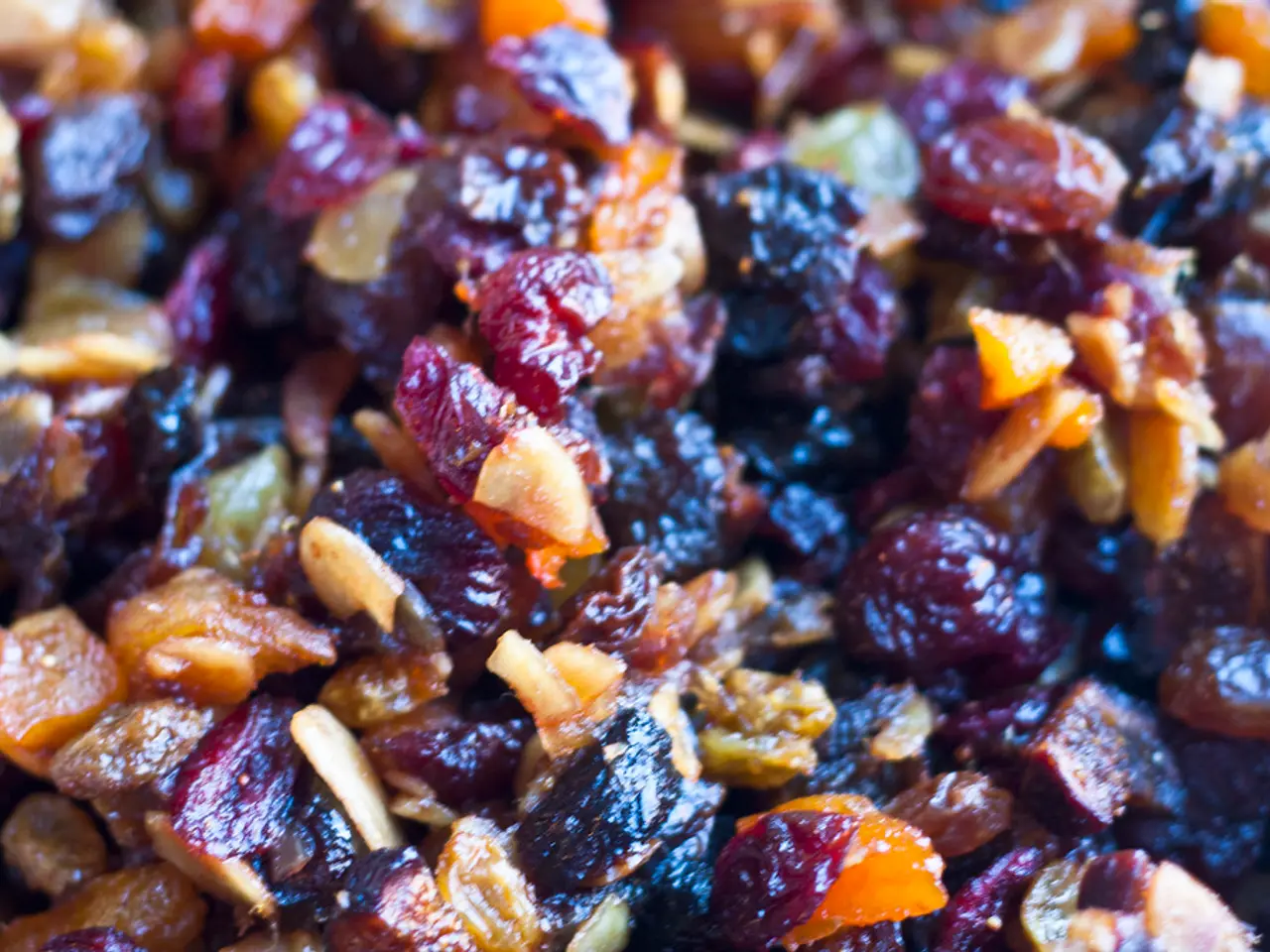Dietary Guidance for Hidradenitis Suppurativa: Foods to Include and Exclude
Hidradenitis suppurativa (HS) is an inflammatory skin disease that affects many individuals worldwide. While there is no definitive cure, managing symptoms can significantly improve quality of life. One area that has shown promise is diet.
A growing body of evidence suggests that certain foods can contribute to or calm inflammation in individuals with HS. Alcohol, known for its inflammatory properties, may worsen HS symptoms. Reducing or eliminating alcohol may offer some relief.
Similarly, simple sugars are a common trigger for inflammation and may exacerbate HS symptoms. Refined carbs, such as desserts, white bread, white rice, pasta, chips, crackers, and pretzels, lead to a greater insulin response and can potentially trigger acne and HS.
On the other hand, choosing fiber-rich foods like fruit, veggies, nuts, seeds, beans, lentils, and whole grains, and pairing them with protein-rich foods can help stabilise blood sugar, which may help manage HS symptoms.
Some foods are inflammatory due to their saturated fat content, such as dairy products high in fat. However, yogurt, especially plain, nonfat yogurt, can reduce inflammation due to its high probiotic content.
Gluten, brewer's yeast, and alcohol are suggested foods to temporarily avoid during an elimination diet for HS. A study suggests that brewer's yeast may cause HS flare-ups, particularly for individuals sensitive to gluten.
An elimination diet, where certain foods are temporarily removed from the diet, may help manage symptoms of HS. Keeping a food journal or diary may also help identify triggers for HS flare-ups.
The Mediterranean diet, focusing on whole, minimally processed foods, especially those that are plant-based, may improve HS symptoms due to high concentrations of micronutrients such as zinc and B12. Some recommendations support Mediterranean or paleo diets to reduce inflammation and HS severity.
Highly processed foods and foods with lots of additives can negatively impact gut flora in individuals with HS. Vitamin D supplements may be beneficial for individuals with HS, as many people with HS are deficient in vitamin D, and the severity of deficiency is correlated with the severity of HS symptoms.
Smoking tobacco is associated with HS flare-ups, so quitting smoking can reduce the likelihood of HS flare-ups.
While diet can play a significant role in managing HS symptoms, it's important to note that everyone's body reacts differently. Consulting a registered dietitian for personalised anti-inflammatory diet plans for HS is recommended.
In conclusion, a well-planned, anti-inflammatory diet tailored to individual needs can help reduce inflammation in the body and potentially manage HS symptoms. By making informed food choices, individuals with HS can take an active role in managing their condition.
Read also:
- Understanding Hemorrhagic Gastroenteritis: Key Facts
- Stopping Osteoporosis Treatment: Timeline Considerations
- Tobacco industry's suggested changes on a legislative modification are disregarded by health journalists
- Expanded Community Health Involvement by CK Birla Hospitals, Jaipur, Maintained Through Consistent Outreach Programs Across Rajasthan








